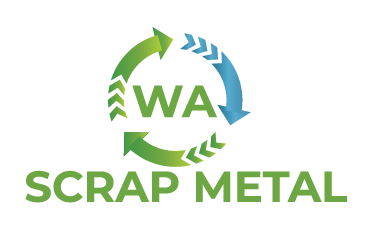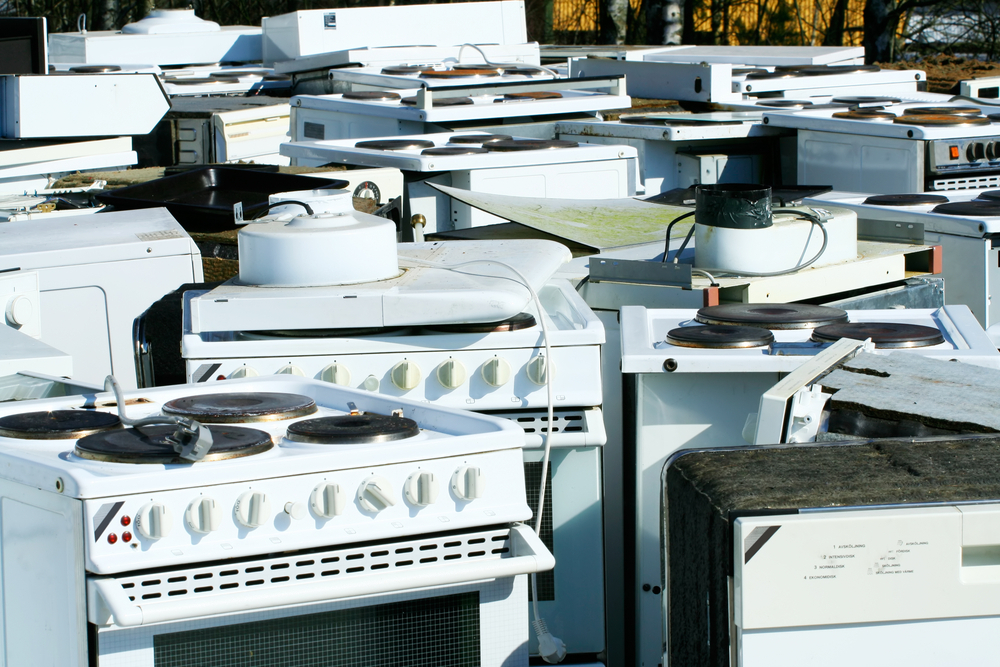White Goods Removal Tips for Easy Disposal
Australia faces a significant issue with waste disposal due to its growing population and consumption habits. White goods, non-biodegradable appliances, pose environmental threats if not properly disposed of. Sometimes, we neglect the importance of metal around us specially the one we use on daily basis. As soon as they get useless, we either throw them away or store them. Why not to practice a healthy habit to make sustainable solution for us and our nature.
In this article, we will explore the importance of white goods removal and tips for their responsible disposal. You can also explore WA Scrap Metal as your scrap metal dealers and scrap metal recycler in Perth.
White Goods Removal Tips for Easy Disposal
Understanding White Goods
The term ‘white goods’ refers to household electrical appliances, traditionally manufactured with white enamel finishes. These appliances include ovens, stoves, refrigerators, washing machines, dryers, and air conditioners. Despite changes in design and color options, the term ‘white goods’ has endured, distinguishing them from ‘brown goods,’ which encompass electronic devices like televisions, radios, and stereos.
Why Are White Goods Not Your Everyday Waste?
White goods are not your typical household waste for several reasons. They are bulkier, heavier, and non-biodegradable, making them unsuitable for regular waste disposal. Additionally, the manufacturing process of white goods is associated with significant greenhouse gas emissions, further underscoring the importance of proper disposal.
There are several key considerations for handling white goods:
Recyclable Scrap Metals – White goods primarily consist of recyclable scrap metals and components, including steel, copper, and plastic.
Hazardous Materials – Some older white goods, particularly fridges and freezers, may contain toxic substances like chlorofluorocarbons (CFCs), which harm the ozone layer. Only certified technicians like WA Scrap Metal should handle and dispose of these substances.
Legal Disposal – White goods beyond repair or use must be disposed of following proper processes, avoiding illegal dumping to prevent penalties or legal action.
White Goods Removal Tips for Easy Disposal
Recycling white goods is not only environmentally responsible but also a potentially lucrative venture. Many white goods contain valuable metals and components that can be repurposed, making their disposal a win-win situation.
Below are some of white goods that can be recycled:
| White Goods | Recyclable Components in White Goods |
| Washing Machines | Steel components |
| Dishwashers | Metal components |
| Refrigerators/Freezers | Metal components, recyclable materials, refrigerants |
| Ovens and Stovetops | Recyclable metals-electric and gas models |
| Microwave Ovens | Metal casing, some internal components |
| Air Conditioners | Metal parts, refrigerants |
| Water Heaters | Metal content |
| Clothes Dryers | Metal components |
| TVs | Casings and various recyclable components |
| Toasters/Toaster Ovens | Metal parts |
White Goods Removal Tips
To reduce the strain on landfills and minimize waste, consider the following white goods removal options:
- Inquire at scrap metal recycling facilities, especially if your white goods are no longer in a saleable condition. Some companies also offer take-back schemes.
- Some organizations and second-hand scrap metal dealers collect used white goods for resale or refurbishment.
- Consider giving functional appliances to charity organizations to help those in need.
- Post your appliances on social platforms to sell or give them away.
- Some retailers provide pickup services to return old white goods for salvaging when purchasing new ones.
- Certain junkyards specialize in collecting scrap metals from white goods. Drop off your appliances and potentially earn instant cash for scrap.
- Hiring a skip bin is an efficient white goods removal method, ensuring responsible recycling.
Value of Scrap White Goods
The value of scrap white goods depends on the types of metals they contain. Different appliances have varying amounts and types of metals, which influence their overall scrap value. A washing machine may contain more steel, while a refrigerator could have valuable metals like copper. A scrap metal price list can provide a breakdown of potential earnings based on specific metals. We suggest to always consult experts. At WA Scrap Metal, we offer complete and thorough assistance to check your old scrap and we make sure to offer you the best. Get free quotation and we will be more than happy to assist you with the best price and guidance.
Limiting White Goods Waste
To minimize white goods waste, make conscious choices when purchasing and maintaining appliances:
- Prioritize Energy and Water Efficiency.
- Buy What You Need.
- Support Brands That Promote Recycling.
- Maintain Appliances for Extended Lifespan.
- Consider Warranty and Return Policies.
Conclusion
White goods refer to traditional white enamel used in household electrical appliances like ovens, stoves, fridges, washing machines, and air conditioners, while brown goods include non-white electronic appliances like televisions, radios, and stereos. Innovations have introduced metallic and pastel colors.
Proper white goods removal and recycling not only declutter your home but also contribute to environmental preservation while potentially earning you money. WA Scrap Metal offers white goods removal services, ensuring responsible recycling and competitive prices for your items. Take a step toward a more sustainable and eco-friendly world by recycling your old appliances and reducing white goods waste. Contact WA Scrap Metal for a fair quote and do your part in making a positive impact on the environment.
FAQs
What are white goods in Australia?
In Australia, white goods refer to large household appliances like refrigerators, washing machines, dishwashers, and ovens.
What are brown goods vs white goods?
Brown goods, on the other hand, are electronic consumer products like televisions, radios, and audio equipment. Whereas, white goods contain large electronic appliances like washing and cleaning machines, fridge or stoves etc.
Is a vacuum cleaner a white good?
A vacuum cleaner is not considered a white good, as it falls under the category of small household appliances.
Is a coffee machine a white good?
A coffee machine is not considered a white good.
What type of white goods or mattresses can be collected?
White goods can be collected for disposal or recycling, with specific collection options varying by location.
Is a microwave considered a Whitegoods?
Yes, a microwave is considered a white good as it is a large household appliance.
Is TV considered white goods?
No, a TV is typically considered a brown good, not a white good.
How do I dispose of my old fridge?
To dispose of an old fridge, contact local waste management or recycling centers like WA Scrap Metal.
Where can I dispose of a washing machine in Perth?
In Perth, contact local recycling centers like WA Scrap Metal, waste management facilities, or inquire about collection services provided by your municipality.
Where can I dispose of my electrical appliances?
Electrical appliances can be disposed of at designated recycling centers, electronic waste drop-off locations, or local authorities for guidance on proper disposal methods.


